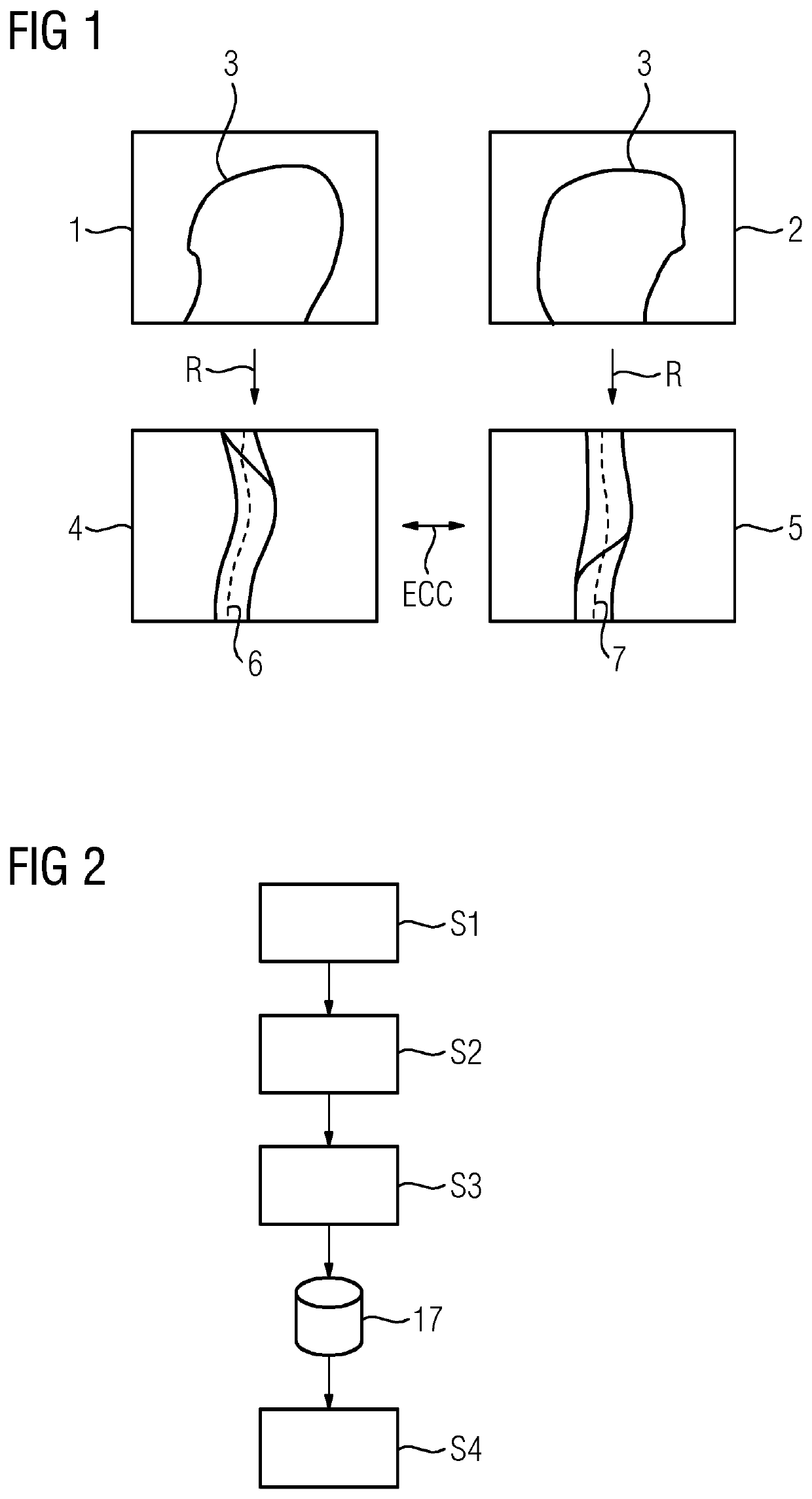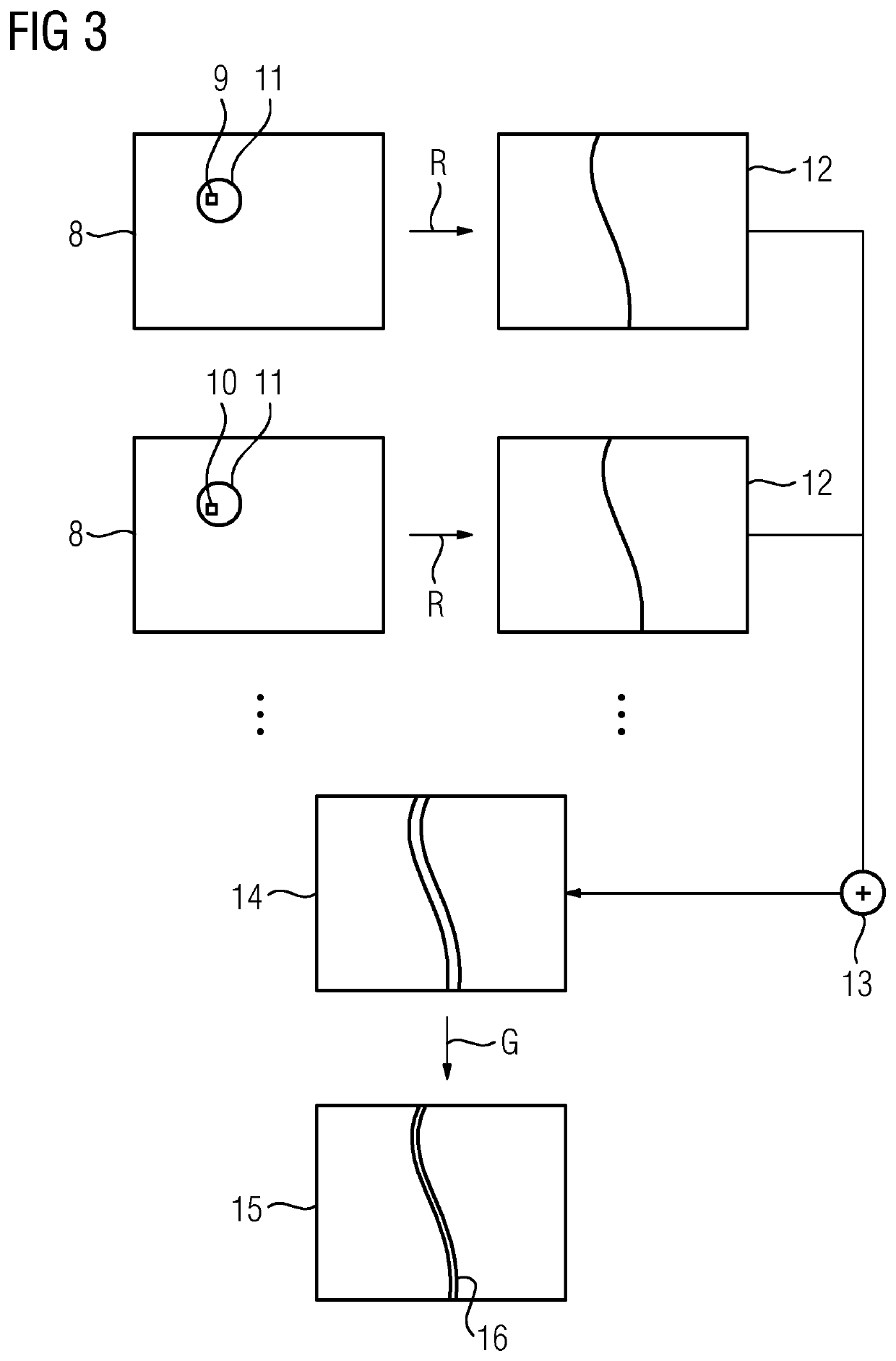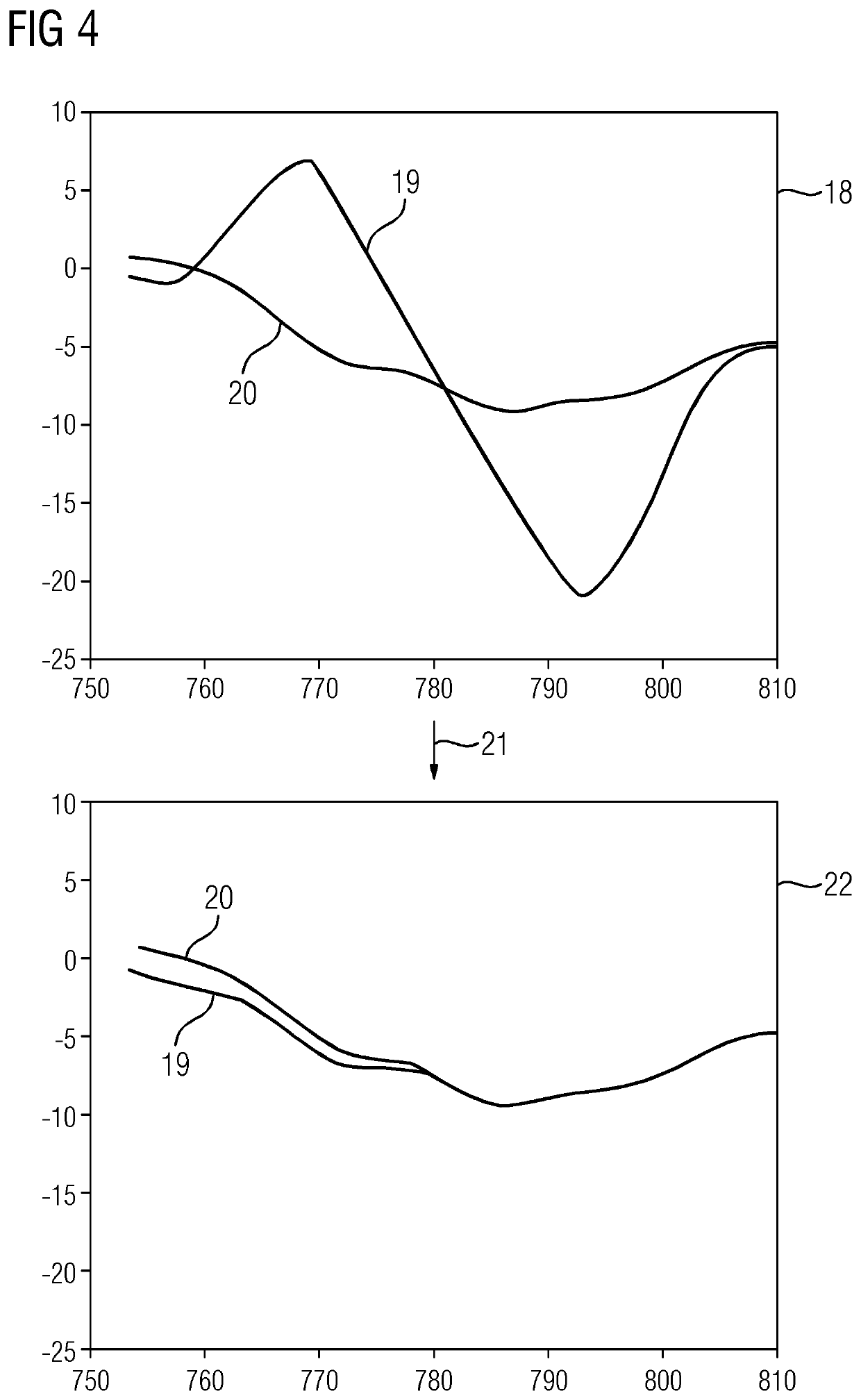Determining image values in marked pixels of at least one projection image
a technology of projection image and image value, applied in image data processing, biological neural network models, computing models, etc., can solve the problems of further degradation of image quality, undermining the image quality of three-dimensional image dataset, etc., and achieve the effect of efficient and economical
- Summary
- Abstract
- Description
- Claims
- Application Information
AI Technical Summary
Benefits of technology
Problems solved by technology
Method used
Image
Examples
Embodiment Construction
[0036]Exemplary embodiments of the method are presented below in relation to medical imaging and, more specifically, to metal artifact reduction in three-dimensional X-ray image datasets that are to be reconstructed. In this regard, as is generally known, a plurality of projection images of an examination region of the patient are acquired by an X-ray device using different projection geometries, each of which is described by a projection matrix (e.g., along a circular scanning trajectory). The projection images form a projection image set. Using the projection images, by applying corresponding reconstruction methods (e.g., filtered backprojection), a three-dimensional image dataset may be reconstructed from the two-dimensional projection images. This may, however, lead to artifacts if metal objects are present in the examination region. Metal objects, and consequently the cause of the metal artifacts, may therefore be computationally removed from the projection images by replacing ...
PUM
 Login to View More
Login to View More Abstract
Description
Claims
Application Information
 Login to View More
Login to View More - R&D
- Intellectual Property
- Life Sciences
- Materials
- Tech Scout
- Unparalleled Data Quality
- Higher Quality Content
- 60% Fewer Hallucinations
Browse by: Latest US Patents, China's latest patents, Technical Efficacy Thesaurus, Application Domain, Technology Topic, Popular Technical Reports.
© 2025 PatSnap. All rights reserved.Legal|Privacy policy|Modern Slavery Act Transparency Statement|Sitemap|About US| Contact US: help@patsnap.com



